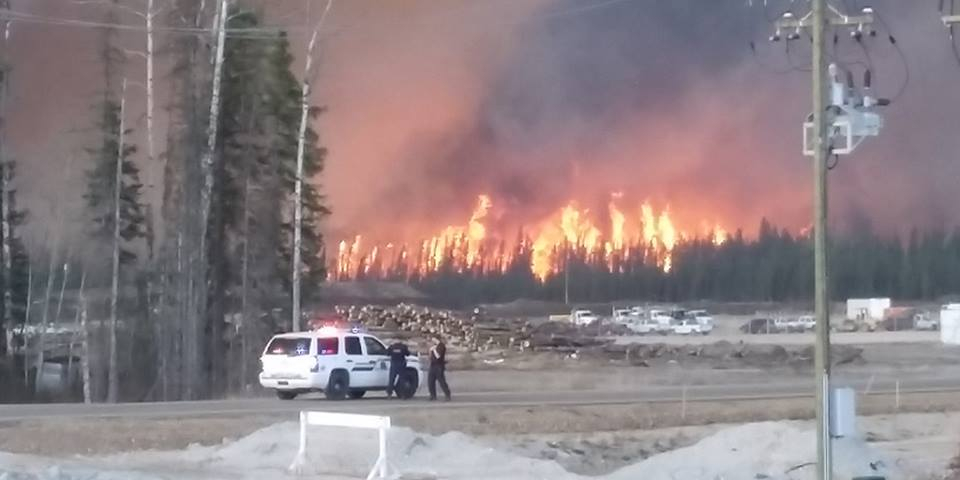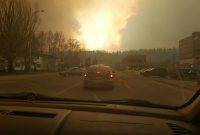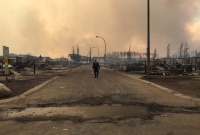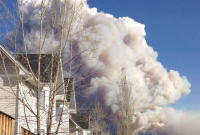Support strong Canadian climate journalism for 2025
As the wildfire situation in Fort McMurray, Alta appeared to stabilize Sunday, insurance companies across Canada have already begun deploying mobile response units and flying in personnel to the province from across the country to prepare to assess the damage.
Most companies have natural disaster and crisis units that were deployed to emergency centres soon after 80,000 people were given the order to leave their homes last Wednesday.
Some 16 insurance companies have established temporary claims offices at the Northlands evacuation centre in Edmonton, and 10 have set up further north in Lac la Biche, said Bill Adams, the vice-president for the western and pacific region for the Insurance Bureau of Canada.
Staff in the centres have been opening claims files and issuing emergency cheques for evacuees, he said.
"Some didn't have identification except what's in their vehicles. They don't have access to their bank accounts, they have to reapply for their basic information," he said. "So to be able to demonstrate with a vehicle registration that they are in fact who they are and to have funds given to them is a very emotional experience."
A spokeswoman for Intact Insurance said the company has a catastrophe team that works year-round. It set up temporary claims centres "within hours" of the evacuation order.
Rosa Nelson said the company has opened offices in Edmonton, Lac la Biche and Calgary where agents are beginning the claims process and issuing $5,000 emergency cheques.
Craig Richardson, the vice president of claims operations for TD Insurance, says the company has sent about 30 people to work at shelters with evacuees,. It also mobilized 500 people internally across the country to help with anything from answering phones to flying out and assessing fire damage.
"I think speed matters a lot, and when you have these type of devastating and traumatic events customers need to understand we're there to stand with them when they need us the most," he said.
The company has also dispatched its two "mobile response units," which are RVs customized to serve as satellite claims offices.
Adams says both the companies and private citizens are waiting for the government to let them enter the Fort McMurray area.
At that point, he expects hundreds of insurance adjusters to converge on Fort McMurray, as companies send teams with trucks and trailers of equipment to open field offices and begin processing claims.
The damage can range from the total loss of a residence to the cost of cleaning smoky carpets to replacing food in a refrigerator.
And although almost all home insurance covers fire damage, the size of the payout will be calculated based on factors including the type of damage, value of goods in the house and the type of policy purchased.
One RCMP officer said Saturday that officers were seeing significant signs of water and smoke damage during their checks of houses in the city.
Adams said the insurance industry was considering using satellite and drone technology to help survey and map damaged areas to make the claims process go more quickly, although he couldn't estimate how long it would take.
He said that after the fires in Slave Lake, Alta in 2011, people who lost their homes had to wait anywhere from eight months to over two years for them to be rebuilt.
Many companies say they've had ample opportunity to practice their disaster response in recent years, especially in Alberta.
Between the Slave Lake fires and massive flooding in parts of southern Alberta in 2013, the province already accounts for almost 60 per cent of all insurance claims resulting from severe weather events, Adams said. That's a number that's likely to rise as the Fort McMurray claims start to come in.
Nelson said her company has seen "exceedingly more" natural disasters over the last ten years than ever before.
"We now almost consider this a normal course of business and we definitely are prepared and have good processes in place," she said.
-- The Canadian Press







Comments